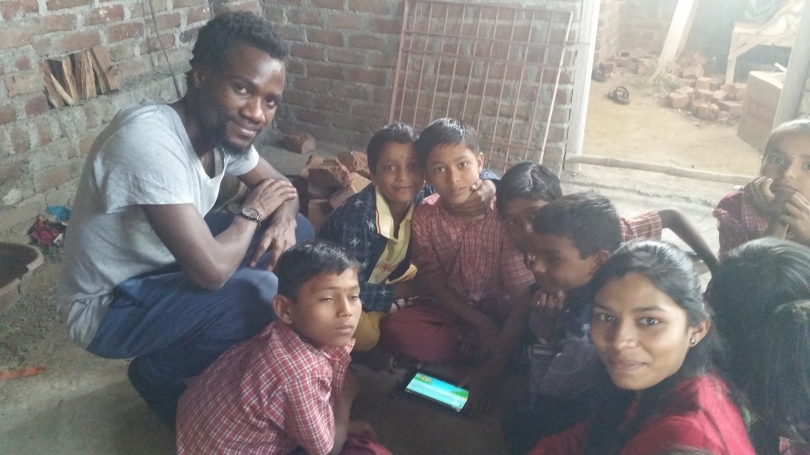
- Public Policy
- Leadership
- Funding
- News & Events
- About the Center
Back to Top Nav
Back to Top Nav
Back to Top Nav
Back to Top Nav
Linford Zirangwa '19 interned at the Pratham Education Foundation during the 2019 winter term. The following is an excerpt from his internship report.
This winter, I interned at the Pratham Education Foundation. Founded in 1995 to provide education to children in the slums of Mumbai, India, Pratham Education Foundation has grown to become the largest education NGO in the world. Pratham works independently, with other NGOs and with governments to run many programs in and out of India. The programs aim to provide quality education to populations without access to education. In recent years, chatbot technology has gained popularity with for- profit businesses. However, chatbot technology also has great potential for use in education. Pratham was looking for ways in which it could use this technology for its programs. I was tasked to research this technology and build a prototype for use in one of Pratham’s programs. Over the course of 6 weeks I worked with two Pratham developers to build the prototype. At the beginning of my internship, I was not very familiar with chatbot technology, but by the end I could build and deploy a chatbot and had gained knowledge of types of chatbots and their limitations.
During Week 3 of my internship, I visited Mumbai and met with Meera, who runs a program that Pratham is doing in collaboration with JPAL, an MIT research group, called Teaching At the Right Level (TARL). I learned NGOs collaborate with government and other non-profits e.g. in Zambia, Pratham. I learned how these collaborations work financially as well as how culture plays into the model.
During Week 5, together with 3 members of the Technological Innovations team, I took a six-hour trip to Aurangabad, an Indian city in the state of Maharashtra. The vocational training centers are run by Pratham Institute, with the goal of training youth below 25 years and providing access to employment opportunities. The centers take students from villages in India and have them go through a 3-month course, after which they are placed at different companies in India. During my time at the center, I got to understand the different parts of the center and how they work together. For example, I visited a science center and two village centers. These visits were positive because I got a chance to meet the users of the chatbot application I was helping build. Besides the joy that came from seeing the kids interact with the games, I gained insights into Indian cultural attributes that have made some of Pratham’s models possible.
The working atmosphere at Pratham gave me the freedom to develop self-motivation and organization when it comes to work. Though there was less pressure on deadlines, I found myself in a position where I would only learn if I applied myself to complete the work. I developed self-motivation that I want to take with me to Dartmouth or in whatever work I do. I would like to thank the Rockefeller Center for providing me with the opportunity to learn about intercultural communication, the workings of a big education NGO, and its programs and implementation of such programs in the field.
The Rockefeller Internships Program has funding for Dartmouth undergraduate students to help defray the cost of living expenses associated with a full-time, unpaid, leave-term internships in the fields of public policy, public affairs, and social entrepreneurship.